1310 Nowell Road
Raleigh, NC 27607
1310 Nowell Road
Raleigh, NC 27607
Existing CSP Client: (919) 424-2060
SALES: (919) 420-3231
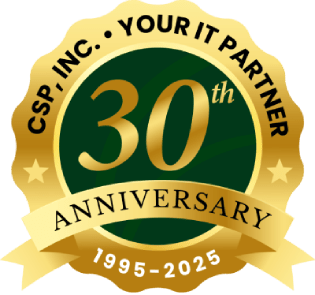
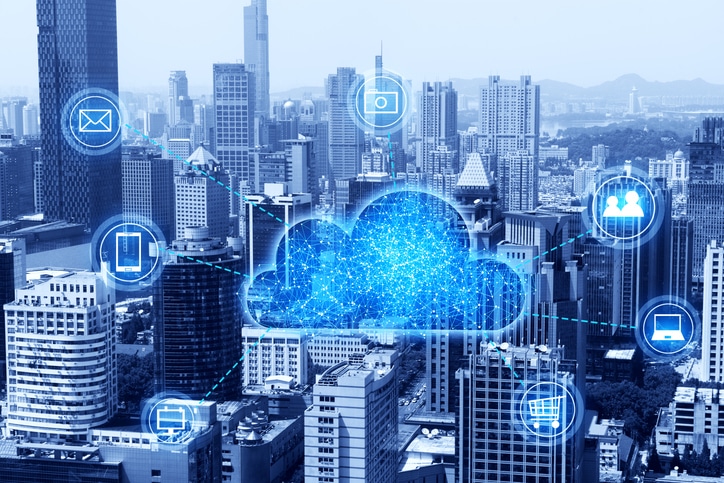
The cloud may still feel like a new technology – but in reality, it’s been around for more than 10 years now.
Does that make you feel old?
Let’s be clear about something – the cloud is here to stay. In recent years you may have still heard the occasional “industry insider” suggest that the world may be moving too quickly to an untested and unsure platform in cloud computing, but no more. The cloud is now an integral part of daily life for private consumer and business users alike.
What Is The Cloud?
The cloud is a network of technologies that allows access to computing resources, such as storage, processing power, and more. That’s where the data is – in these data centers all around the world. Which data center your data is in depends on what cloud service provider you’re working with.
Public Cloud
Ideal for small businesses that may have trouble budgeting for any other type of cloud deployment, a public cloud is simple and cost-effective. Your data is stored in a “communal” data center, which, while not offering the best possible security or compliance guarantees, is often sufficient enough for organizations that aren’t required to maintain regulated compliance.
Private Cloud
A secure, dedicated environment to ensure maximum performance, security, and functionality for your business applications and employees. This is usually deployed for complaint-driven businesses such as healthcare and finance.
A Hybrid Cloud
This is like a dedicated cloud computing resource on Office 365 and Azure Stack with an extension to on-premise resources for maximum performance, control, security, and functionality. This is for businesses that require maximum control and scalability.
Instead of entrusting your legacy solutions to a public or private cloud, many businesses are opting for a hybrid cloud. They use a mix of on-premise, private and third-party public cloud services because this provides an infrastructure where one or many touchpoints exist between the environments.
Using a hybrid cloud gives you the freedom to choose which applications and resources you want to keep in the data center and which ones you want to store in the Cloud.
The Cloud Isn’t As New As You Might Think…
Would you say the cloud is “new”?
To some, this may seem like a question with an obvious answer, but it’s not that simple.
The way in which we think about technology can lead to something feeling new for a lot longer than would make sense otherwise.
After all, the cloud is more than a decade old, but a lot of people still think of it as a new technology.
For context, it was 2006 when Google and Amazon began using the term “cloud computing” – not necessarily the beginning of the cloud, but as good a point to choose as any.
In that year, the now woefully dated Crash won Best Picture at the Oscars. The Tesla Roadster was still two years from hitting the streets. Netflix was more than a year away from launching its now prolific streaming services.
Does that put it in perspective?
SaaS (Software as a Service)
Software as a Service (SaaS) applications are being adopted at a much faster pace today than in the past. These are productivity applications like Microsoft Office 365, cloud-based practice management solutions, accounting programs, and more.
Your SaaS provider helps you identify and select line of business applications that will run well in the cloud. They can migrate your data and integrate it with software platforms in your current premise or cloud technology stack, or help you implement new ones.
PaaS (Platform as a Service)
This is whole cloth delivery of web applications that are based in the cloud, all via a comprehensive platform. The idea is that, in accessing this platform, you can utilize, develop and even deliver applications based on resources that you don’t need to maintain on-site.
IaaS (Infrastructure as a Service)
Infrastructure as a Service (IaaS) delivers IT infrastructure on an outsourced basis and provides hardware, storage, servers, data center space, and software if needed. It’s used on-demand, rather than requiring you to purchase their own equipment. That means you don’t have to expend the capital to invest in new hardware.
Why Should You Use With The Cloud?
For the same reasons that thousands of other businesses around the world have already adopted cloud computing:
You Need To Keep An Eye On Your Cloud
As beneficial as the cloud can be, it’s important to note that it can also pose risks if it isn’t managed properly. It all comes down to the classic binary relationship between convenience and security.
The cloud gives you unparalleled access to your data from anywhere with an Internet connection. That means that external parties (including cybercriminals) can have undue access to your data as well if you don’t take the necessary steps to secure your environment.
That’s why you need to monitor your cloud. No matter who you entrust your data to, you should ensure that you or someone in your organization is given appropriate visibility over your cloud environment. That way, you can guarantee that security and compliance standards are being maintained.
If you don’t have the resources to manage this type of ongoing monitoring, then it would be wise to work with the right third party IT services company. Doing so will allow you to outsource the migration, management, and monitoring of your cloud. You’ll get the best of both world – security and convenience.

Always at your service to provide the highest level of quality support to our customers.

Anthony Firth Client Engineer

“I’m passionate about building and fostering relationships, and finding solutions for success.”

Michael Koenig Client Account Manager

“I help clients stabilize and grow their IT infrastructure so they can focus on growing their core business.”

Josh Wilshire Systems Engineer Team Lead

“I strive to provide the highest level of quality service to our customers.”

Tommy Williams Sr. Hardware Engineer

“I’m driven by the steadfast belief that technology must serve as a business enabler. This mantra has driven 21
Years of successful partnerships.”

Stephen Riddick VP Sales & Marketing

“CSP doesn’t succeed unless your company succeeds.”

Stephen Allen Inventory Manager

“Through my intuition and genuine concern to help others I have built long-lasting relationships with our customers, co-workers and business partners.”

Scott Forbes VP Support Services

“Every day, I work with clients to help plan the future of their businesses.”

Michael Bowman vCIO

“Your IT problems become our IT solutions.”

Mark McLemore Project Engineer
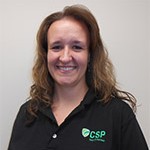
“Managing internal and external operations to ensure that CSP provides quality and reliable customer service .”

Margie Figueroa Business Manager
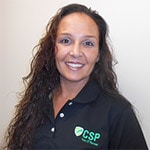
“Providing quality internal and externals financial support to our customers and accounting support to CSP.”

Katie Steiglitz Accounting Administrator

“Some call me the CEO. I call myself the Cheerleader for an awesome team!”

William B. Riddick Founder & CEO
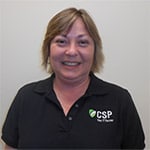
“CSP is here to assist you with your IT needs.”

Beth Wylie Inside Sales Manager

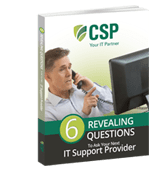


On What Questions You Need To Ask Before Signing Any Agreement.
"*" indicates required fields

Raleigh IT Support Company and IT Services Provider | CSP Inc.
1310 Nowell Rd,
Raleigh, NC 27607
Existing CSP Client: (919) 424-2060
SALES: (919) 420-3231
Receive email updates and informative marketing materials by subscribing to our newsletter.
"*" indicates required fields